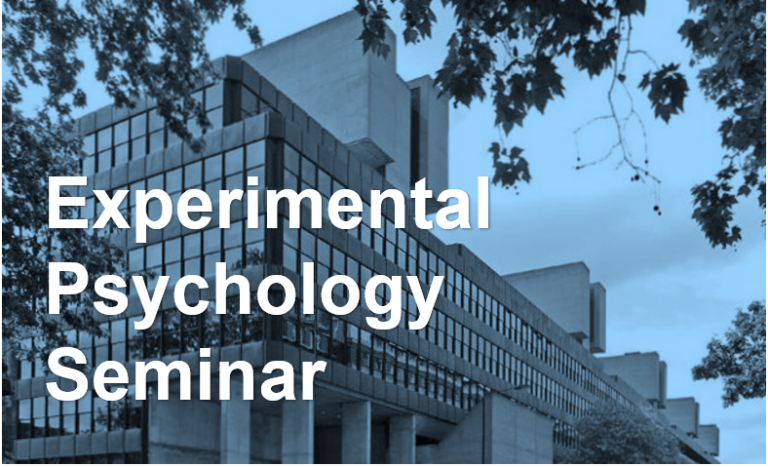Reorganization of the visual and somatosensory systems in health and disease,T. Dorina Papageorgiou
13 December 2019, 1:00 pm–2:00 pm

Experimental Psychology Seminar: "Reorganization of the visual, somatomotor, and somatosensory systems in health and disease to induce learning using individualized real-time fMRI neurofeedback applications", T. Dorina Papageorgiou (Baylor College of Medicine)
This event is free.
Event Information
Open to
- All
Availability
- Yes
Cost
- Free
Organiser
-
Antonietta Esposito
Location
-
Room 305Department of Experimental Psychology26 Bedford WayLondonWC1H 0DSUnited Kingdom
T. Dorina Papageorgiou (Baylor College of Medicine)
Reorganization of the visual, somatomotor, and somatosensory systems in health and disease to induce learning using individualized real-time fMRI neurofeedback applications
The Papageorgiou/Investigational Targeted Brain Neurotherapeutics Laboratory examines how to achieve experience-dependent plasticity in human cortical networks, as a function of induced learning. In particular, we focus on how learning can neuromodulate two separate systems in health and disease: i. cortical visual; and ii. somatomotor, somatosensory/pain. The principle of this purposeful induction of cortical reorganization is that it can induce recovery in the cortical visual or motor systems over time by bypassing the lesion and capitalizing on intact networks that are redundant and can become functionally associated with the lesioned one, as a function of individualized neurofeedback training. To reorganize the network’s functions, our lab has developed a targeted approach called individualized real-time functional MRI neurofeedback (iRT-fMRI nFb) for the neuro-rehabilitation of neurological injuries, specifically for: i. cortical blindness, meaning retrochiasmal cortical injuries; and ii. speech and swallowing as a result of glossopharyngeal (Gp) and hypoglossal (Hp) nerve injury.
My talk will focus on how induced learning using iRT-fMRI nFb occurs in health and disease: the individualized recruitment of networks to induce reorganization of the cortical visual and the motor systems following injury; ii. the crucial networks, that are the “drivers” in the induction of associative learning using iRT-fMRI nFb; iii. the common interhemispheric and synchronized spatiotemporal networks across subjects that increase BOLD signal intensity during neurofeedback; iv. the increased performance evidenced in both healthy subjects and patients during iRT-fMRI nFb as opposed to control conditions.
 Close
Close

